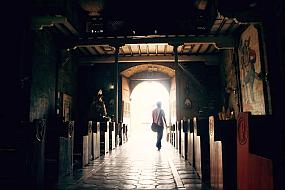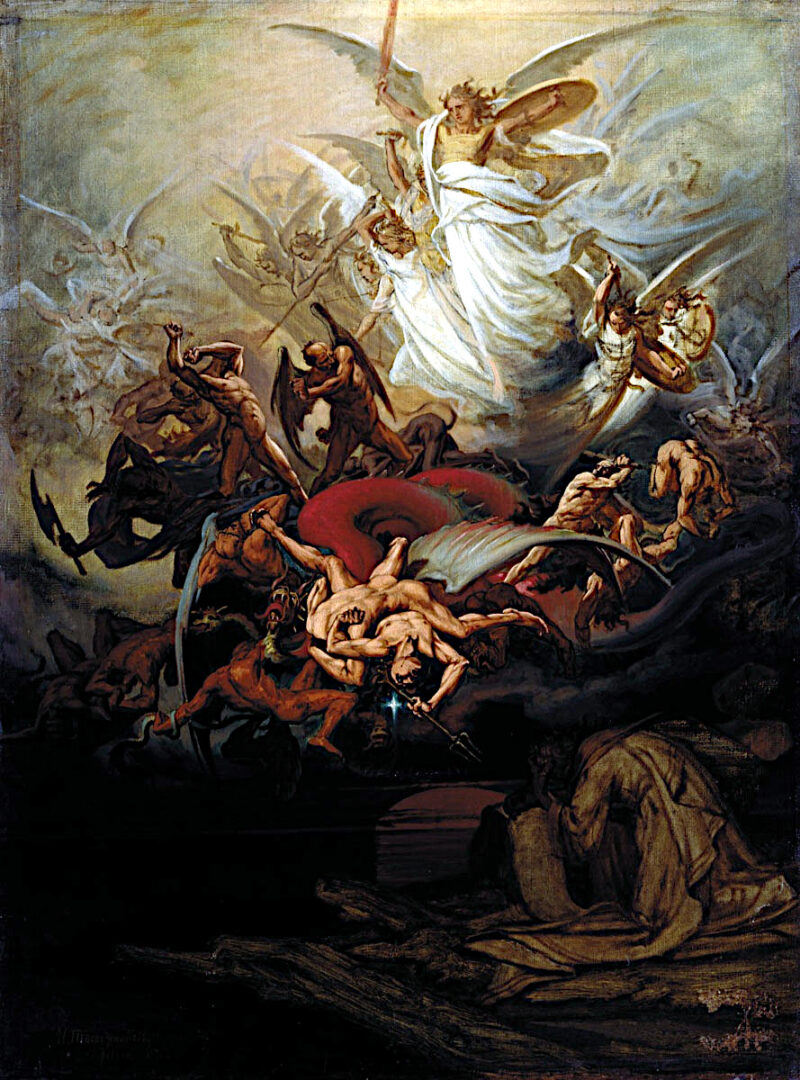 When my 15-year-old son graduated out of Sunday School, he missed the dialog he got in class. We sat passively in church on Sunday mornings, and I could tell he was disconnecting. I’ve never been a twice-on-Sunday person, so I thought that perhaps we instead could go on Sunday nights, where the youth group was a little more like the Sunday School he had been attending. Similar worship, but with a little more back-and-forth, and a more intimate crowd.
When my 15-year-old son graduated out of Sunday School, he missed the dialog he got in class. We sat passively in church on Sunday mornings, and I could tell he was disconnecting. I’ve never been a twice-on-Sunday person, so I thought that perhaps we instead could go on Sunday nights, where the youth group was a little more like the Sunday School he had been attending. Similar worship, but with a little more back-and-forth, and a more intimate crowd.
Still, something is not the same. It’s not just the transition from Sunday morning to Sunday evenings, but something in me. And it’s because I’ve changed at the same time the Church in America has.
We’re at a crossroads, folks. I’ve written about it for years, but I think I need to talk more about it.
This transition has got me pondering where we as Christians got off base and the general status of the Christian Church in America. I want to share my experience.
I want to reiterate that it’s my experience. I’m drawing on it. It may be different for you. It probably is.
First, I don’t have any allegiances to any one flavor of Christianity. Each has some validity, and each has its blind spots, and even its wastelands. In fact, the valid and invalid differences are largely what define each church or denomination.
I’m going to cheese off a lot of people by saying this, but if you’ve been in the same denomination from the day you were born, it’s like living on a farm in Montana in the middle of nowhere. Nothing wrong with your place, but East Etherville, Montana, is not New York City, and it sure as heck is not Beijing, China. Don’t kid yourself into thinking you know what the Christian faith is like, because your flavor of it ain’t even close to being the full expression. Really. You don’t know. And as much as I’ve been around the block in a bunch of American denominations of radically different expressions, I’ve never sat in a Catholic cathedral in Argentina, a house church in peril in Iraq, or a decaying Greek Orthodox Church in Athens. I can imagine what those would be like, but I would be wrong. You and your favored flavor are wrong, too, about some aspect of the Christian Church universal. Just accept your limited view and subsequent wrongness. You’ll be a better and more humble servant of Christ if you do.
So again, what I share here is my experience. It’s wrong from the start from someone’s perspective, and I understand that. You don’t have it all down either. Thank you.
I grew up in the Lutheran Church, and as much as the Lutherans had it going on with understanding grace and the centrality of Jesus, there wasn’t a lot of concern for the lost or for being the priesthood of all believers empowered by the Holy Spirit. Sure, the priesthood of all believers is a bedrock Lutheran understanding, except like an excerpt from Animal Farm, some creatures were more equal than others—and those had ordination papers and a seminary degree.
Ironically, it was a Spirit-filled Lutheran who taught me about the charismata, but then there wasn’t much room for that wonderful man in Lutheranism either, so…
I saw a lost-concerned, Spirit-filled way to live when I started attending an Assemblies of God church. While the leaders at that church were solid, the denomination had trouble with some of its other leaders and big names, and it all tainted the rest of it. Human frailty—and for a young, naive man, it was hard to make sense of. Now, I know better.
The Church of Christ Restorationist asked many good questions about some aspects of the Faith I had always taken for granted, but they had the opposite problem with wayward leaders, and I never understood how one could restore the Christian Church by blackballing people.
The Presbyterians held Scripture and study in high regard, but sometimes money was held up equally high, and people who didn’t have any money not so much.
Evangelical Free excelled at being all evangelically. Good sermons, though.
Methodists somehow hold together their big tent of diverse factions, and we can all learn from them, but they also have a hard time telling anyone, “Yeah, that ain’t right, and you need to stop doing that.”
The Vineyard rocked both the Kingdom of God Now and the Kingdom Not Yet, and it also got the gifts, creativity, and worship right. In fact, the Vineyard folks had the best balance—at least until John Wimber died. And that whole Kansas City Prophets fiasco.
American Baptists—well, they have John Piper and a few other solid pastors who are trying.
Pentecostals have a great sense of duty to God and country and to ol’ time religion. Coming full circle, I just wish there were more focus on Jesus (rather than whatever it is I’m doing) and grace.
Here’s the thing. All those churches and denominations have their goods and bads. But somehow, someone, somewhere, some church, has got to put all those goods in one place. And start dumping the bads at the same time.
Does any church pray anymore as a corporate body on Sundays? And not here and there, three minutes and a cloud of dust, but on-your-knees, specific, intense, non-canned prayers, both with church leaders leading and the people in the seats praying for the immediate needs of the folks sitting next to them. I mean, how hard is that? Really, if the Church as a whole isn’t devoted to prayer, we might as well pack up and end the charade. We’ll spend a half-hour singing witless, CCLI-approved chart-toppers, but praying for more than five minutes taxes everyone’s ability to focus. C’mon, Church!
I used to adore worship times. I would genuinely lose myself in the hymns of my old Lutheran church and during the peak era of the Vineyard with its huge P&W influence. Great, great music sung with passion to our great God.
Today, I grit my teeth in worship time because the songs we sing are so bizarre, unfocused, irrythmic, vague, and constructed for marketing purposes. Who is this sung to? For? And why is there a new song or two every week? Why does the entire verse consist of the same note or two, and yet it’s so hard to sing? Heck, I used to play drums on a church worship team, and I’m not even sure how to make all the syllables fit in that line. And why does nothing rhyme so I might recall the rhyme and remember how the song goes? Maybe it’s me. I dunno. I think the last contemporary worship song that helped me connect to God was “Revelation Song,” and that came out like a decade ago, right?
I don’t want to sit in a pitch-black theater anymore, where I can’t see people around me (you know, the Body of Christ), and where I can’t look at anyone on stage because I have a strobe light flashing in my eyes, all 50,000 watts of it. I don’t want to go to church and worry that I may have an epileptic seizure from the light show.
Jesus, Light of the World. Remember when churches were lit by natural light? Often with some stained glass windows, which were enough light show for most of us? I get enough darkness during the week. Can I come to church and see the faces of fellow believers lit both by natural light and also the Light of the Holy Spirit? Please?
And speaking of Jesus, can I hear the Word of God read out loud? A big chunk of it? In context, please, and not a set of cherry-picked verses used to make a point. And can the sermon be about Jesus and not about how I can try harder to be a good Christian? I don’t need five points and an application or three. I need Jesus. I need to hear about Him because it’s unlikely I’ll hear about Him from the world, except as a curse word or two, and the world is where I dwell for most of the week anyway. Maybe if I heard more about Jesus, some of those places where I’m screwed up as a husband, parent, employee, or whatever would get better because I had more of Jesus—rather than having more Christian principles I can’t possibly keep because I’m a broken person who is terrible at using checklists to make myself better.
Maybe I could go to church and use the gifts God gave me to help other people. If I had a chance. I pray well, I think, and I do hear from the Lord for other people. Words of knowledge. Words of wisdom. I care about other people, but sometimes my life is harder than I wish it was, so I don’t get the chance to do as much personal ministry outside of this blog and those opportunities I might have for a couple hours a week in the assembly of the believers.
Sometimes, I wonder if any church thinks I have value within the Body of Christ. I think I’m not alone in wondering that.
Maybe I’m too self-centered by asking these things and wondering what the solutions might be.
I hope to see a church that lifts up Jesus and never stops doing so, where the whole Bible is read actively and with joy, and prayers are the language of love that each of us bestow on each other (and not just hidden in our prayer closets).
I want to sing to the Lord and not worry that I’m off beat or that I’ll screw up the words, and that those words have real meaning about Jesus, and not some capitalized Someone, or some River, or Rain, or whatever the market-driven metaphor of the week is. I want to connect with God in worship and not hope to and instead leave disappointed that somehow I knew how to worship just fine once, but I’m not doing it right anymore.
I keep hoping for more spiritual Light and not more artificial lights. There’s enough gloom in the world; I don’t want to marinate in it on Sunday, punctuated only by lasers and disco balls.
I really don’t want to hear about me anymore or what I should be doing. I’m painfully aware of what I can and can’t do, and the can’ts outnumber the cans. I want to hear about Jesus, because He can do everything, and without Him, none of us can do anything.
I want to hear about and experience the Kingdom of God Now. Because none of us is marking time until Heaven. It doesn’t work that way and never has. Most of us are aware of the Kingdom of God that is Not Yet. Most of the Church in America has shifted everything to the Not Yet and acts like the other half doesn’t exist. I want to see—and be a part of—the other Kingdom half too.
I long to be the beneficiary of the assembled Body of Christ’s collective charismatic giftings and to use my gifts to help too. Because that’s the entire point of being the Body of Christ, each person unique and necessary to the health of the whole. Along the way, maybe we will hear prophetic revelation that will be discussed and discerned as true by mature leaders, so the church can anticipate needs and not always just react, both with too little and too late. You know, the way Paul said the Church should be, not this deaf and dumb thing we substitute because we’ve disempowered everyone out of ungodly fear.
More than anything, despite all the cranks, killjoys, fearmongers, and naysayers, I pray for a Church that is everything we see in the Book of Acts and more. Because THAT Church has never stopped existing—except in the hearts and minds of shriveled people. And I’m not one of them. God help you if you are.
We keep asking what is wrong with the Church in America. We’re wringing our hands over what has gone awry, and why attendance is down, and why, why, why…
I’m no genius, but it seems to me that we have simply forgotten what is main, plain, and important. We have no patience for God, no love for anything authentic, and we want to be entertained for an hour.
But that’s not everyone.
I really don’t want what most people seem to treasure in a church nowadays. A show doesn’t cut it for me. Neither will business principles and celebrities save a church, nor hip leaders, marketing trend analysis, or flash.
The Holy Spirit showing up in power WILL draw people, though. Churches toss in everything else when there is no presence of God. Sooner or later, people get wise to the lack. They’re getting wiser every day.
Some people want the presence of God. Heaven knows I do.
Maybe I’m self-centered in my wants, but I want real Church done the old-fashioned way. More than that, I desperately need it. Maybe you do too.


 When my 15-year-old son graduated out of Sunday School, he missed the dialog he got in class. We sat passively in church on Sunday mornings, and I could tell he was disconnecting. I’ve never been a twice-on-Sunday person, so I thought that perhaps we instead could go on Sunday nights, where the youth group was a little more like the Sunday School he had been attending. Similar worship, but with a little more back-and-forth, and a more intimate crowd.
When my 15-year-old son graduated out of Sunday School, he missed the dialog he got in class. We sat passively in church on Sunday mornings, and I could tell he was disconnecting. I’ve never been a twice-on-Sunday person, so I thought that perhaps we instead could go on Sunday nights, where the youth group was a little more like the Sunday School he had been attending. Similar worship, but with a little more back-and-forth, and a more intimate crowd. In the Gospels, whenever we see Jesus starting with “You have heard it said…, but I say to you…” we know His upside-down Kingdom is on display.
In the Gospels, whenever we see Jesus starting with “You have heard it said…, but I say to you…” we know His upside-down Kingdom is on display.